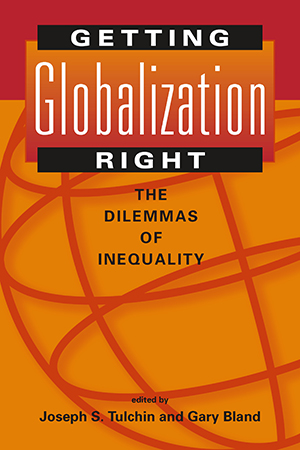
- 2005/261 pages
Getting Globalization Right:
The Dilemmas of Inequality
Hardcover: $55.00
ISBN: 978-1-58826-346-9
Paperback: $24.50
ISBN: 978-1-58826-322-3
Getting Globalization Right explores political and economic changes in seven new democracies that have in common both a movement toward greater integration with the world economy and the challenges posed by persistent or even increasing domestic economic inequalities.
The authors argue that, without effective national policies to dampen the effects of globalization, the short-term impact of opening the economy has a negative effect on levels of poverty and inequality. In a more positive vein, however, and without minimizing the difficulties involved, they identify the types of social policies that can blunt or counter these negative effects. They also suggest that international governance will have a growing influence on how globalization affects individual nations.
The up-to-date, empirically rich case studies in the book cover the experiences of Brazil, Mexico, the Philippines, South Africa, South Korea, Spain, and Turkey.







